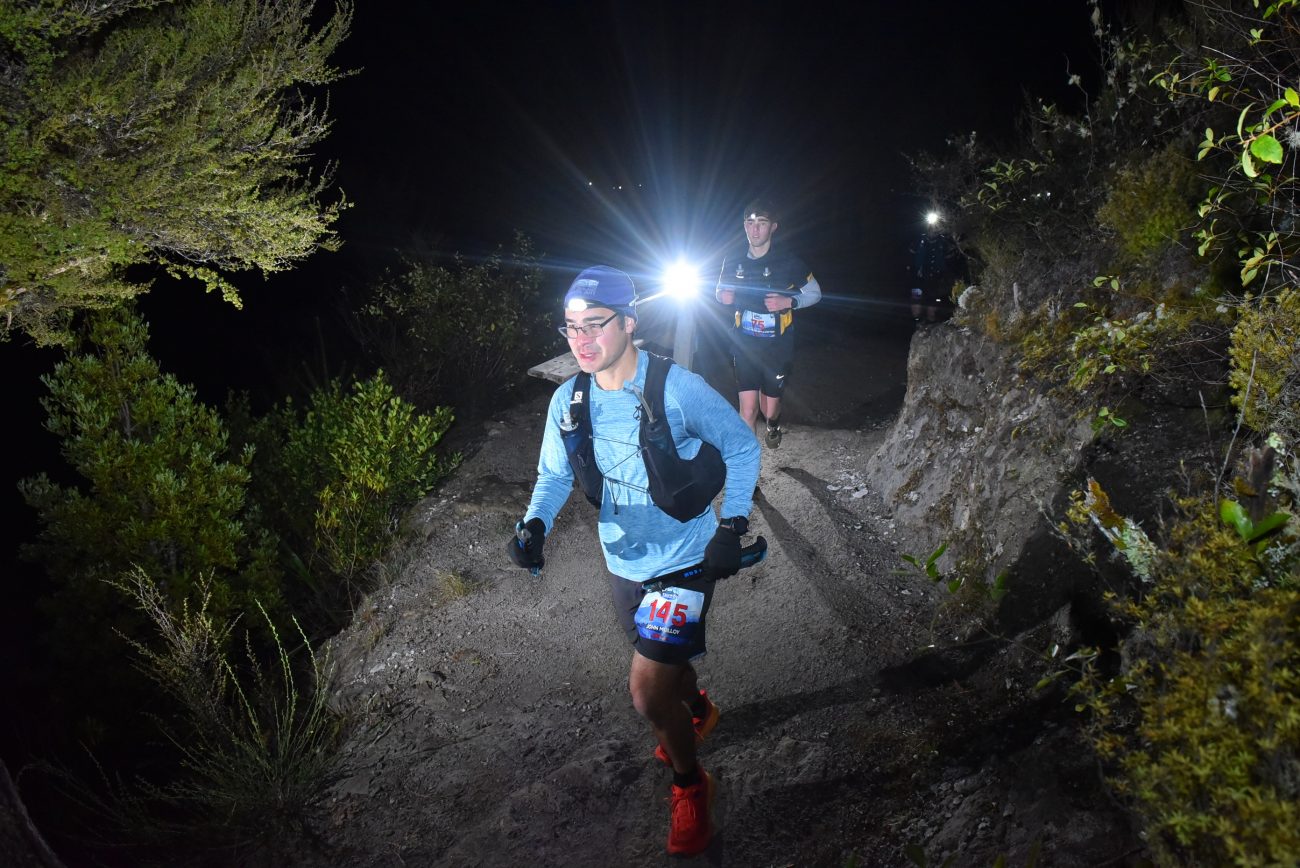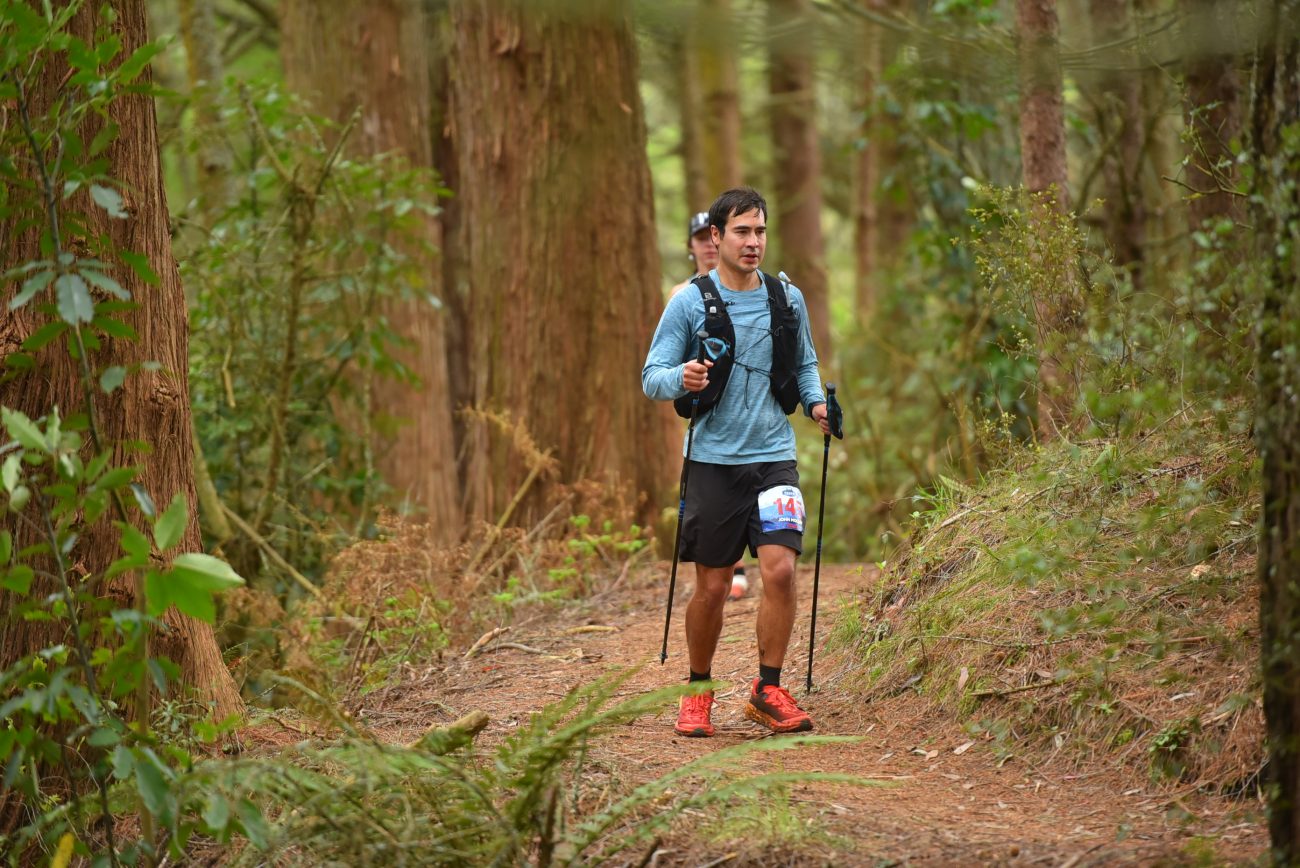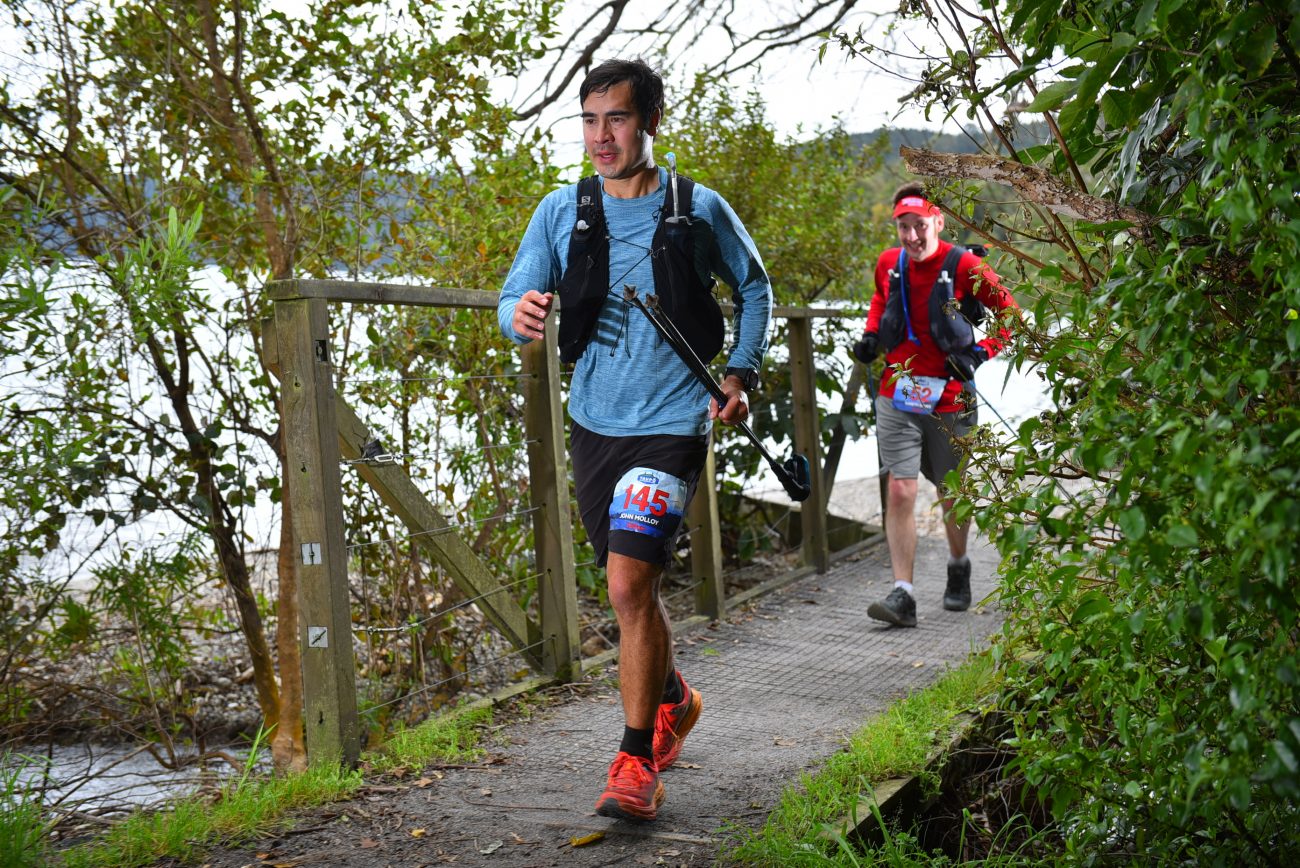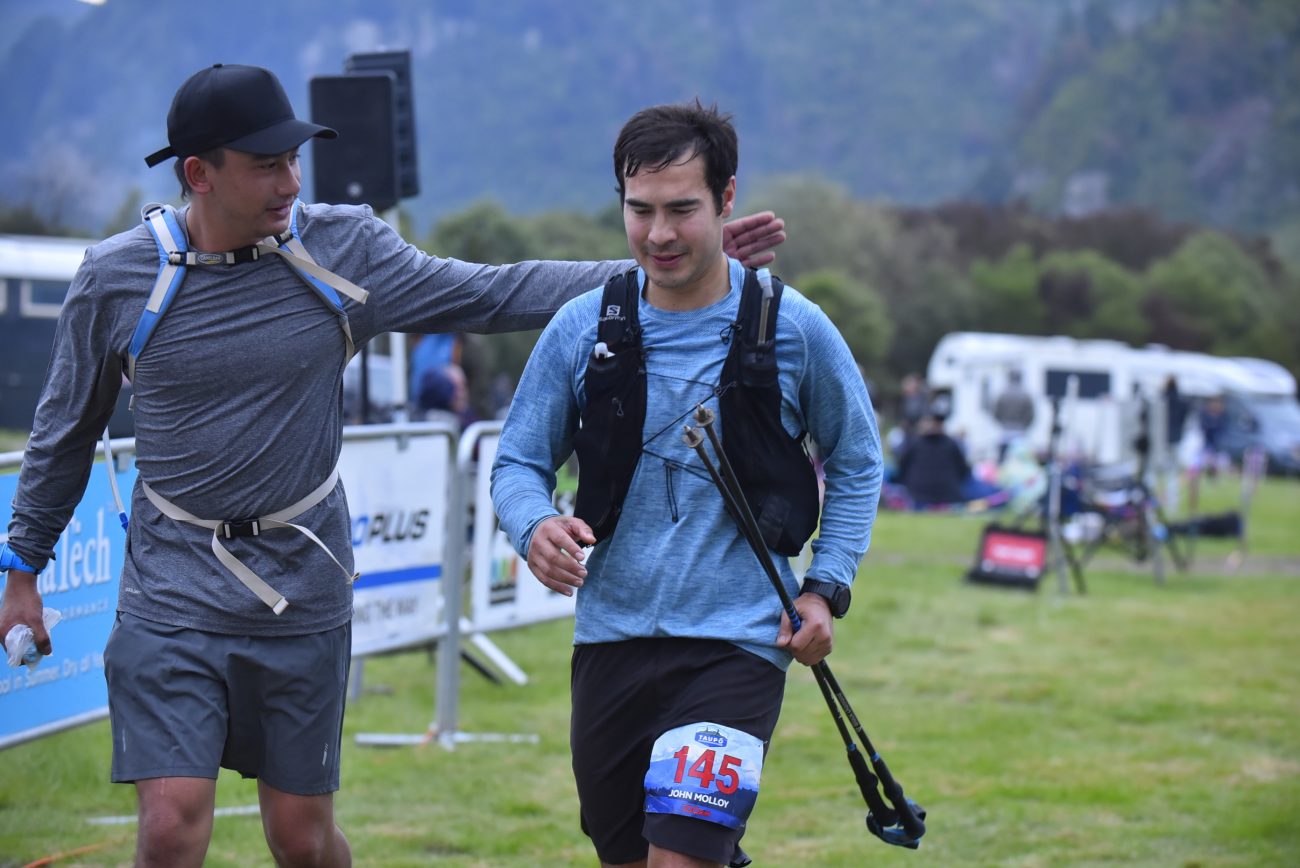
Taupo Ultramarathon 100km:
100km # 7
Date:
October 15, 2022The Taupo Ultramarathon 100km had been postponed from October 2021 to December 2021 until it was finally cancelled due to Covid. So when the 2022 edition neared, I was unsure whether to bypass the event completely, postpone for another year, or just do it. I’d already paid the $400 entry fee but there is no refund policy for ‘can’t be bothered’, ‘changed my mind’, or ‘this is too hard’ yet I was feeling all of these things. Having booked flights earlier in the year, I’d also really backed myself into a corner. So when Dr Andrew Stanley pulled out (the man who originally convinced me that a 100km would be a good idea and to join him), I began to waver in my commitment. The great thing about entering an event is that it holds you accountable. Accountable to your training, preparation, and for showing up. I was still coming down from the highs of the Leadville 100 so I knew I was in reasonable physical shape. But was I mentally and emotionally up for this? A 100km demands full investment otherwise the reasons to stop overcome the reasons to finish. After mulling on it for a few days, the defining thought process was don’t make someone else’s excuse your excuse. Just get on with it. Commit. Sometimes the more we overthink things, the more likely we’ll talk ourselves out of doing something physically challenging. And for good measure, your mind will also justify it. Whether you think you can, or think you can’t, you’re right. Just like any race, you need to break it down into achievable tasks or risk being overwhelmed. Just book your accommodation, organise transport, pack well in advance, and make your flight. I arranged for my cousin Paul to pace me from 76km onwards (to add another layer of accountability) and I also organised time with my family in Rotorua pre and post event as an incentive to show up. For years I’ve entered events without really appreciating how effective they are in keeping me honest and holding me accountable to start lines. In my opinion, the hardest part of any race is getting to the start line. So is a 100km start line really harder than a 100km finish line? Definitely! The difficulty getting to the start line is proportional to the length of the event. There is an art to making start lines. It’ll take dedication, accountability, and an appreciation of your own psychology. Sometimes you just need to ignore your excuses. Nothing entered, nothing started. Nothing started, nothing finished. What happens in between is the learning and challenging of self.

Headlamps on near the start
It’s Saturday 3am and I’m in my bunk bed in a shared dormitory at the Taupo YHA backpacker hostel. I’m awoken by this loud banging resonating from the room beside me (excuse the pun). I should’ve been wiser with my choice of accommodation but $35 a night seemed like a bargain at the time. For most of the night, my sleep was interrupted by the laughter and hollering of inebriated youth. But the banging was the final straw. It was time to accept my fate and get up and run a 100km. I catch a ride with Dr Esther O’Sullivan at 3.30am in order to catch the 4am bus that will take us to the start line. When we hop into the bus, it’s remarkably lively. Strangers in brightly coloured running gear are laughing and chatting freely seemingly unburdened with the forthcoming struggles. When we get to our destination, it’s 4.45am but the race doesn’t start until 5.30am. Some of the colourful mob head straight to the toilet cues to continue socialising but I’m reluctant to get out and loiter in the cold. Esther eventually coerces me off the bus and we head to a wooden shelter near the start line. There is a river close by which intensifies the damp coolness so I start to jiggle around on the spot to keep warm. Waiting around in the dark and cold is my least favourite bit of ultra running but Esther doesn’t seem to mind and stays positive throughout. Tough Irish girl. After about half an hour of questioning my own resilience to the cold, I happen by chance to see Esther clutching onto something with her Raynaud-like white fingers. “What are you holding onto Esther?” I asked. “Oh these? Handwarmers. Would you like one?” WTF, I thought. Cold weather 101: Use your brains not brawn as I sheepishly took one. After what felt like an age, we were eventually called to the start line and it was time to delayer and brave the cold. In keeping with tradition, a representative from the local iwi was entrusted to give a karakia (Māori prayer) before the starter’s gun. “You guys are all mad” he started. There was mixed laughter and then he commenced the karakia proper. Not being fluent in Māori, I said my own ultra runner’s prayer. Dear Lord. Give me the strength to finish, the wisdom to stop only after I’ve finished, and well-behaved bowels. And please ease the suffering from 80km onwards. Amen. After which, I crossed the start line and into the darkness with 150 other faithful runners.

Lush forest past the airstrip (half way point)
After crossing the swing bridge, it’s a gentle climb up onto the cliff tops above the river. As you reach the top, you’re welcomed by the pink and orange rays of the early morning sun. Sun rises always seem better when you’re moving. As it gets lighter, one can really appreciate the beauty of the Waihaha Trail. The trail is surrounded by abundant dense native bush (mainly Tanekaha) with outcrops of weathered volcanic rock. In the clearings of bush, there are spectacular views of Lake Taupo and all its vastness. The course then crosses over farmland and past a large old woolshed (Barton’s woolshed / 33km). After the woolshed, you traverse over more challenging farmland. Due to the high winter/spring rainfall, a waterway has spilled over on the fields meaning unavoidable wet feet. Once through the farmland, you encounter a mixture of gravel and sealed straight roads (some very long straights) until you eventually reach the 50km mark at the airstrip. When I arrive at the airstrip, it’s around 12pm and I’ve been on my feet for 6.5 hours now. By the time you get to the airstrip, if things weren’t already hard, they become harder. The reason I like (and also don’t like) the 100km distance, is that it forces you to run the kilometres you don’t want to run. For many experienced runners, they are the kilometres past 30km and for many ultra runners, the kilometres past 42km. However, for the vast majority of people in our society, it’s sadly any physical activity at all. There is a fantastic book titled ‘Exercised’ by Daniel E Lieberman (who studies human evolution) which I’d recommend to anyone with an interest in their health and fitness. The main premise of this book is that we were never evolved to exercise. This concept of being ‘born to run’ has been sensationalised somewhat and more so after Christopher McDougall’s best-selling ‘Born to Run’ book which centres around a hidden tribe of Mexican Indian super runners called the Tarahumara. But Lieberman helps us to understand why it’s so unnatural for some to exercise. He argues that we never evolved to exercise and were in fact born to avoid non-essential physical activity. Humans have lived longer in ‘energy scarce’ rather than ‘energy rich’ times so it’s an ancient instinct to conserve energy. Our ancestors were only physically active when necessary to survive as energy was needed in order to reproduce and ultimately maintain our survival as a species. Guess what happens to a women’s period if she exercises too much? Lieberman illustrates that for the few remaining hunter gatherer populations in society today, their exercise is their physical work as part of everyday living (e.g. walking, hunting, lifting, carrying food and water). Hunter gatherers like the Hazda walk about 11.5km/day. They also don’t simply turn on a tap to get fresh water. Any water has to be resourced and carried back to the tribe. No hunter gatherer populations did exercise for the sake of health and fitness. For the Hazda, the concept of a treadmill was abnormal and bizarre – why would you walk to get nowhere? So from an evolutionary perspective, it’s more normal to avoid unnecessary physical activity and exercising is the abnormal behaviour! Which leads us to our current problem. Our modern technological world has eliminated a lot of day-to-day physical activity and hence we’re more sedentary than ever. And though we may never have evolved to exercise, we also never evolved to be as persistently physically inactive as we are now. Hence, we need to be a bit more compassionate to those who struggle to exercise and stop pretending that exercise has to be fun all the time. Though I paid $400 to enter this 100km, I appreciate that no amount of money would ever entice someone to participate in this distance. For those who don’t exercise regularly, it’s not instinctive for them to do unnecessary physical activity (the multitude of ‘why should I do something that is unpleasant and hard’ people). These people need encouragement and not judgement. For those of you reading this who don’t exercise regularly, you need to realise that you have to fight this deeply ingrained instinct and move with the changing times. Look around you. Everything is motorised and most of the hunting and gathering now occurs at Pak’nSave. You need to exercise for your own health and fitness. Though you may not like exercise, your body loves movement. There will be days where you won’t want to exercise. This is normal (even for people who exercise regularly). You need to fight this urge and be more physically active at every opportunity. Persist and hang in there and eventually you’ll learn to like exercise! Succumb to your instincts, and you’ll risk becoming prematurely obsolete.

Running with Gareth around Kawakawa Bay
As I mentioned earlier, a 100km forces you to run the kilometres you don’t want to run. The vast majority of ultra runners who started today didn’t’ say “What a beautiful day for it. I think I’ll run a 100km for fun!” Ultra runners run the distances they do because they appreciate the benefits in it. They realise that change happens when you challenge yourself and do the things that you don’t want to do. And it’s not just physical or mental change, but internal change. There is an unknown power in suffering. It’s like your soul feeds off it. A 100km distance influences your soul and shapes your life. You’ll hear people say that a 100km/100mile is life changing. I personally wouldn’t go that far but semantics aside, it does change your life. Your outlook on life is never quite the same after completing a 100km. As I leave the airstrip, I know I’m entering the kilometres I don’t want to run territory. When I last ran the Taupo Ultramarathon in 2018, the section just after 50km was where the course chewed me up and spat me out so I was keen to hold my own this time. I eventually catch up to a runner called Gareth. He looked to be in pretty bad shape with more side to side than forwards movement. But when he sensed my approach, he picked up his pace again. I couldn’t work out whether he was a 100km runner or a back of a pack walker from the 74km distance as although he appeared to be working hard, his walk/shuffle was quite effective. Content to hold rather than push the pace at this point, I just sit in behind him. We did this for about 30-60 minutes in complete silence until he pulled to the side and said “Thanks for pushing me.” This was never my intention of course. I simply didn’t have the energy to make a pass and was content to hold my pace. “No worries”, I replied. He then sat in behind me until the next aid station at 62km. I hung around for a bit topping up my drinks and eating oranges and lollies when I noticed Gareth loitering around the aid station. It’s funny how misery attracts company. A problem shared is a problem halved right? I sensed he was keen to stick together. “You ready to go?” I enquired. And off we went again. As we walked up the “wee hill” into Kinloch, we started to talk a bit more. He shared how he got into ultra running and I shared my own story. He was a home brewer who was “getting too fat” drinking his own home brew so he started running. Over the course of a couple of years, he built up to running 100 miles. Although I didn’t say it at the time, I thought, you must’ve been drinking a lot of home brew. I enjoyed his company and we ran with each other for at least a half marathon all the way to Kinloch. As we approached the Kinloch aid station, Gareth was back into a good rhythm. He told me that he was going to push through and I told him I needed to stick around at the aid station for a bit. I also had a pacer waiting for me. At this point we thanked each other and parted ways.

Running with Dani
When I arrived at Kinloch, it was around 3.30pm. I’d done 76km and had been on my feet for 10 hours now. My cousin Paul (determined not to miss me) had caught the 10am bus into Kinloch so was ready to go. The last 24km to the finish had the greatest elevation gain but I was actually looking forward to this. The Taupo Ultramarathon 100km is quite a challenging course as it’s very runnable. It’s so runnable that your finishing time is largely determined by your will and desire to keep running and not walk. Hence, after running the majority of 76km, I was looking forward to walking up the last big rise. “I reckon it’s about 4 hours up and over to the finish” I told Paul. “Hopefully we’ll finish before sunset but bring your head lamp just in case”. In the lead up to the event, Paul had been apprehensive to pace me despite my reassurances that after 76km I’d be going pretty slow. I ignored his own doubts and multitude of excuses because I knew he had the potential and the ability to dig deep. I’d given him lots of encouragement but I think the lightning bolt was when I warned him that if he was too slow, I’d leave him behind. We were hence both accountable to each other. Him to stick with me and me to get him through this. As with my previous pacers, we started at a walking pace so I could eat and Paul could warm up and lose any nervous or pent-up energy. After walking the initial steep bit, we then commenced a reliable shuffle all the way to the top. Paul tucked in behind me and we kept good company. At around 85km we were joined by a lively and enthusiastic lady called Dani. It’s always better to surround yourself with positive people when running an ultra. We seemed to have the mettle on her on the uphill but then she would catch up to us again on the downhill. We invited her to cling on and we shared good chat. Dani was 29 years old and was doing her first 100km. She shared that her father had type 1 diabetes and died at 39 years of age. She was an “obese teenager” and conscious of her family history so she started running. Although her mother was concerned, she started training for a 100km and the rest is history. The 100km wasn’t killing her, she was killing it! It never ceases to amaze me how open people can become during long distance events. Running for more than 50km seems to remove the filter and experiences are easily shared. It also never ceases to amaze me how seemingly ordinary people (like Gareth and Dani) can turn around their lives and do extraordinary things. The three of us manage to stick together and maintain a good pace all the way to the finish line. Dani has a sprint finish but I’m content to coast to the finish with Paul. We eventually cross the finish line together just before 7pm in a time of 13hrs and 28 mins. After initially wavering in my commitment to start the event, it was very satisfying to finish. Nothing started. Nothing finished. Change happens when you do the things you don’t want to do. Often the kilometres you don’t want to run count the most. Keep chasing start lines for your own health and fitness. Running is medicine.

Running with Paul (pacer) near the finish
Helpful tip
Change happens when you challenge yourself and do the things that you don’t want to do
Crossing the Taupo Ultramarathon 100km finish line
